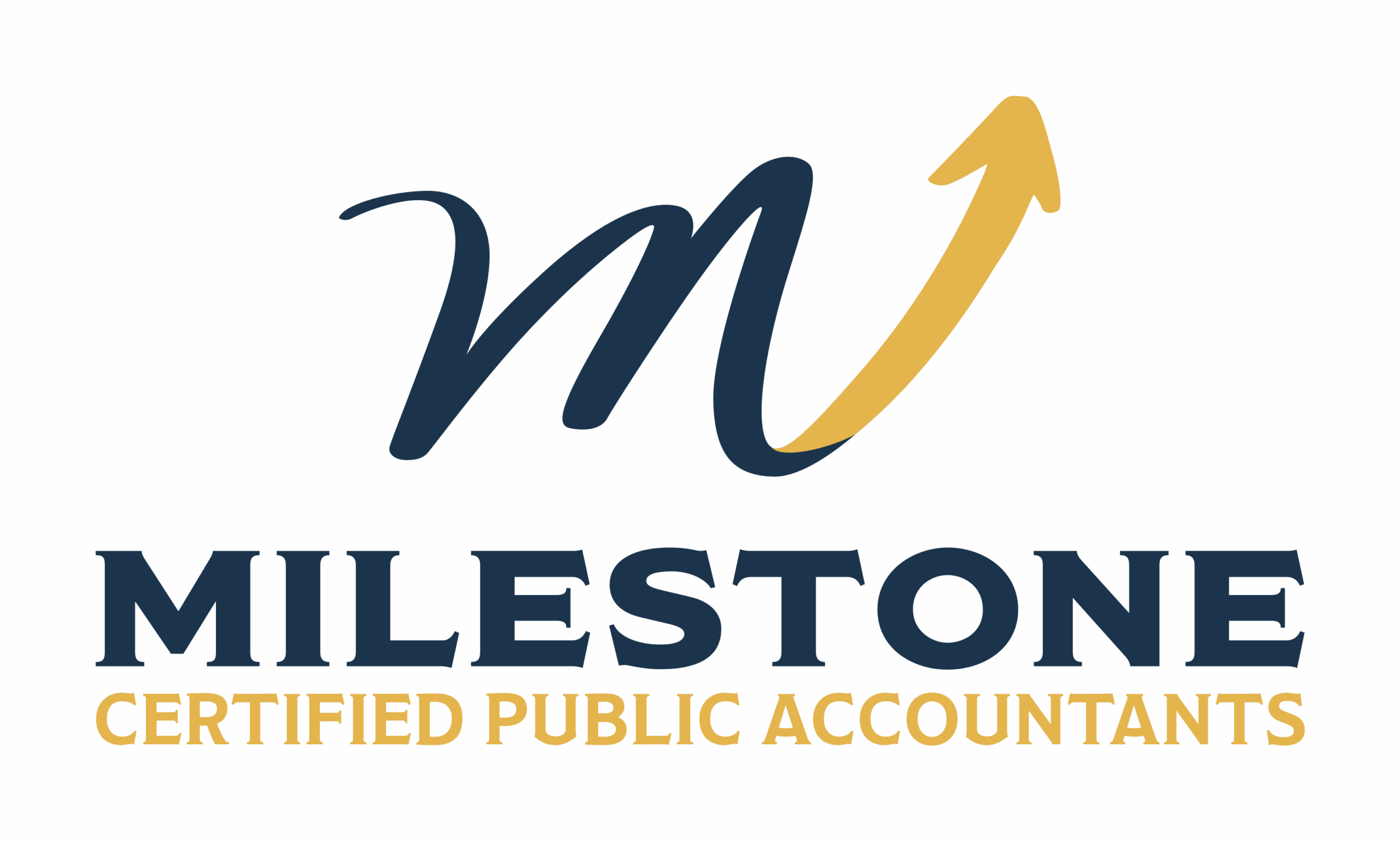Real estate is one of the most powerful vehicles for building generational wealth — but the way you structure your investments can mean the difference between massive tax savings and unnecessary exposure. Whether you own a single rental or a large portfolio of multifamily, commercial, or development properties, a properly designed real estate holding company is critical to long-term success.
At Milestone Certified Public Accountants Inc., we specialize in helping real estate investors structure their businesses to minimize taxes, protect assets, and plan for the future. This guide outlines the best practices for structuring a real estate holding company with an emphasis on tax efficiency and liability protection.
What Is a Real Estate Holding Company?
A real estate holding company is a legal entity (usually an LLC or corporation) created to own and manage investment property. Its purpose is not to operate a business, but to hold assets, limit personal liability, and optimize tax outcomes.
Why the Right Structure Matters
Choosing the right structure impacts:
- Taxation of rental income and capital gains
- Liability exposure in the event of lawsuits
- Estate and succession planning
- Financing, partnerships, and 1031 exchanges
Without proper planning, investors often overpay taxes, put personal assets at risk, or make errors that block long-term growth.
Step 1: Start with an LLC for Each Property (or Group by Risk Profile)
The most common starting point is placing each investment property in its own Limited Liability Company (LLC).
Why use separate LLCs?
- Isolates liability: If someone sues over an injury at Property A, Property B is protected.
- Cleaner record-keeping and financial management
- Easier to sell or transfer individual properties
CPA Tip: In lower-risk portfolios (e.g., several single-family homes), you can group similar properties into one LLC — but high-value or high-risk assets should be siloed.
Step 2: Use a Parent Holding Company (Optional but Powerful)
Many experienced investors form a parent LLC or holding company to own the individual property LLCs beneath it. This offers:
- Centralized management and cash flow control
- Privacy (especially when using layered structures)
- Streamlined ownership and estate planning
Structure Example:
Holding LLC (Parent)
├── Rental LLC #1
├── Rental LLC #2
└── Development LLCImportant Note: The parent company doesn’t directly own the real estate — it owns the LLCs that do.
Step 3: Choose the Right Tax Election
LLCs offer flexible taxation, which is where a CPA becomes essential.
Here are your main options:
- Disregarded Entity (Default for Single-Member LLCs)
Simple reporting, flows directly to your Schedule E. - Partnership (Default for Multi-Member LLCs)
Ideal for spouses or investment partners. Requires Form 1065 but offers pass-through taxation. - S Corporation Election
Can help reduce self-employment taxes if you’re earning active income (e.g., from short-term rentals or flips).
Must pay a reasonable salary and follow strict compliance.
Real Estate CPA Insight: Passive rental income usually doesn’t require an S-Corp, but active income (like short-term Airbnb or wholesaling) may benefit.
Step 4: Set Up a Management Company (When Needed)
For investors managing multiple properties, setting up a separate management company can:
- Collect management fees (a deductible expense for the LLCs)
- Pay salaries and benefits
- Reduce audit risk by separating operations from ownership
Tax Advantage: You can shift income to the management company, where it may be taxed at a lower effective rate depending on structure.
Pro Tip: A management company is ideal for real estate professionals who qualify for material participation and want to maximize deductions.
Step 5: Consider a Land Trust for Privacy (Not for Tax Savings)
Some investors use land trusts to add privacy and protect anonymity. A land trust holds title to the property, but the beneficial owner controls it behind the scenes.
Warning: Land trusts do not reduce taxes or offer legal protection on their own. Pair them with LLCs for actual liability protection.op and bottom lines.
5. Treat Intercompany Loans Like Real Loans
If one entity lends funds to another, structure it with:
- A loan agreement
- Stated interest (per IRS AFR rates)
- Payment schedule
- Properly recorded interest income/expense
Why It Matters: The IRS can recharacterize informal loans as distributions or capital contributions, affecting tax treatment and ownership basis.
Step 6: Maintain Clean Intercompany Transactions
If your holding company or management entity moves money between LLCs, treat it like a real business:
- Document all intercompany transfers
- Avoid co-mingling personal funds
- Track loans vs. capital contributions
- Reconcile balances monthly
See Our Related Guide: “Intercompany Transactions: Best Practices for Audit-Proof Accounting”
Step 7: Use Cost Segregation and Bonus Depreciation Strategically
Your entity structure affects how depreciation is applied. With the right setup, you can:
- Accelerate depreciation through a cost segregation study
- Use bonus depreciation to deduct a significant portion of property improvements in Year 1
- Reduce current-year tax liability to reinvest in growth
2025 Update: Bonus depreciation is now 60% (phasing down annually). Plan purchases and improvements accordingly.r.
Step 8: Plan Ahead for 1031 Exchanges
If you intend to sell and reinvest, entity structure affects your ability to do a 1031 exchange without triggering capital gains.
Key CPA Guidelines:
- Avoid converting an S-Corp into an LLC before exchange—it could trigger taxes
- LLCs must remain in place and unchanged before and after the exchange
- Changes in ownership or use can invalidate your eligibility
Step 9: Integrate Estate and Succession Planning
Your holding company can serve as a vehicle for:
- Transferring ownership shares gradually to heirs
- Protecting property from probate
- Valuation discounts for estate tax purposes
- Gifting LLC interests into trusts
Work with a CPA + Estate Attorney to ensure your structure supports long-term goals.
Build a Tax-Smart Foundation from the Start
Whether you’re buying your first property or expanding into a $10M portfolio, real estate success is built on strategy — and your structure is step one. At Milestone CPAs, we design custom entity structures to fit your goals, protect your assets, and reduce your lifetime tax burden.
Own investment property or plan to? Don’t leave your structure to chance.
Milestone Certfied Public Accountants Inc.
– Ronak Bhatt, CPA, MBA
Accounting for Your Success
Every Step of the Way













